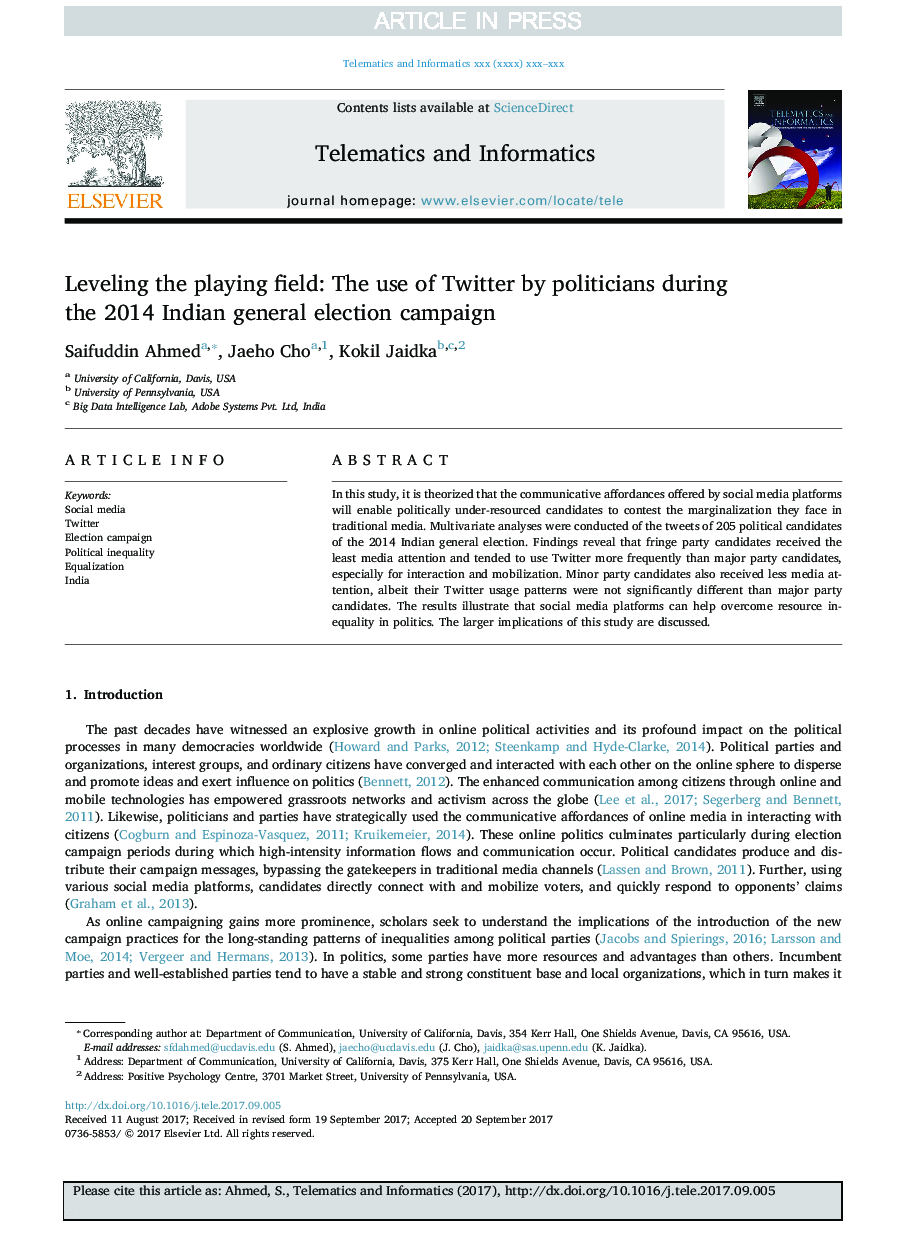| Article ID | Journal | Published Year | Pages | File Type |
|---|---|---|---|---|
| 6890058 | Telematics and Informatics | 2017 | 10 Pages |
Abstract
In this study, it is theorized that the communicative affordances offered by social media platforms will enable politically under-resourced candidates to contest the marginalization they face in traditional media. Multivariate analyses were conducted of the tweets of 205 political candidates of the 2014 Indian general election. Findings reveal that fringe party candidates received the least media attention and tended to use Twitter more frequently than major party candidates, especially for interaction and mobilization. Minor party candidates also received less media attention, albeit their Twitter usage patterns were not significantly different than major party candidates. The results illustrate that social media platforms can help overcome resource inequality in politics. The larger implications of this study are discussed.
Related Topics
Physical Sciences and Engineering
Computer Science
Computer Networks and Communications
Authors
Saifuddin Ahmed, Jaeho Cho, Kokil Jaidka,
